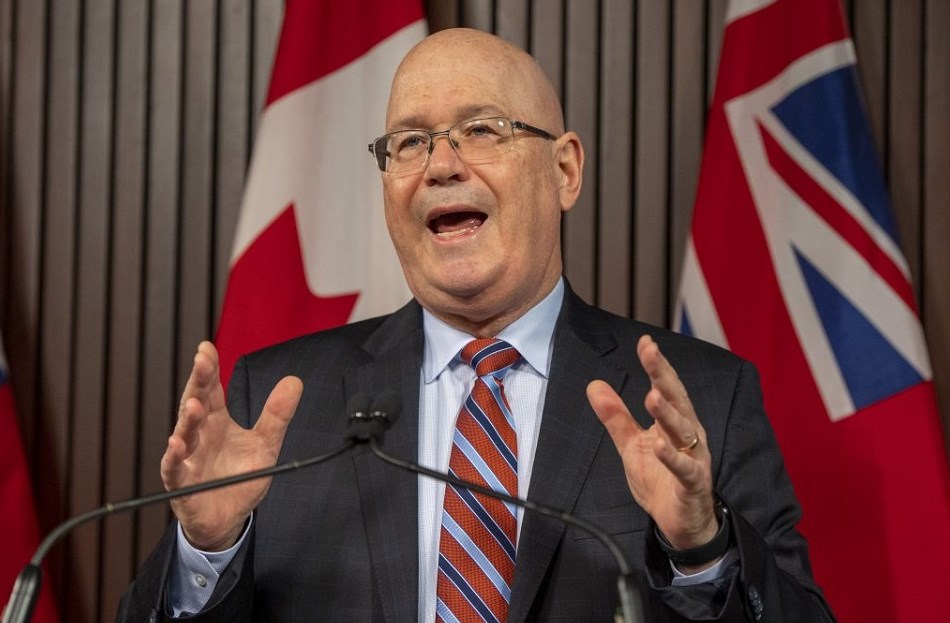EDITOR’S NOTE: This article originally appeared on The Trillium, a new Village Media website devoted exclusively to covering provincial politics at Queen’s Park
Municipal Affairs and Housing Minister Steve Clark and Toronto deputy mayor Jennifer McKelvie agreed on the terms for an audit, months after Ontario mayors spoke out about the Ford government's housing bill's effect on their financial sustainability. Despite the recent agreement, other municipalities haven't heard any details on whether they'd be subject to a similar audit.
“We understand that there will be a process for additional municipal governments to be audited. Municipalities welcome the opportunity to have an objective examination of their finances, and we look forward to more information from the Ministry about the next steps," said Brian Rosborough, executive director of the Association of Municipalities of Ontario (AMO), in a statement to The Trillium.
The first — and currently only — municipal audit is officially moving forward with a fairly tight timeline.
At Toronto's last city council meeting on March 29, McKelvie put the audit's terms of reference before council and asked councillors to quickly endorse it so the process can get moving.
The audit reflects "several rounds of discussions with provincial and municipal staff to ensure an audit that is expeditious, scoped properly, and effective," according to the motion. The parameters "represents a compromise by both parties," the motion said.
The audit has two main focus areas.
First, it'll look at what the financial impacts of Bill 23 are for Toronto if the city meets or exceeds the province's target of building 285,000 houses by 2031.
That averages out to 28,500 homes per year over the 10-year period starting in 2021. Toronto's only come close to that number once since 2010, when over 25,000 homes were built in 2012, according to Canada Mortgage and Housing Corporation data.
Second, it'll look at how to optimize "growth-related infrastructure investments."
"Have growth-related capital planning decisions been managed with due regard for economy, efficiency, and effectiveness?" the document asked.
More specifically, the study will look at if the city used the various municipal housing construction-related levies "according to their intended purpose" and "consistent ... with the appropriate legislation and having regard for council direction."
"It'll also look at whether the city had appropriate processes in place to ensure the funds collected from those levies were used for proper growth-related projects, and if the actual investments were made according to best practices," the document said.
The first part is supposed to be done by July 1, while the second is expected finished by Sept. 30.
For her part, McKelvie thinks it's an open-and-shut case.
"As we know I am confident that the City of Toronto collects, spends and forecasts development charges and related housing infrastructure effectively," the motion said. "For this reason, it is my strong desire to have this audit go forward as it will validate the claims we have made around" Bill 23's financial impact.
"Clearly, if we are to be made whole for any changes in revenue, we need this audit to be undertaken as soon as possible — and given the city’s 10-year capital needs, I am anxious to proceed without delay," the motion also said.
Toronto is facing a near-$1-billion-budget shortfall in 2023, on top of a $700-million shortfall for 2022. The province committed to closing one-third of the 2022 gap. The city was hoping there would be more money in both the provincial and federal budgets for its financial woes, but nothing came.
McKelvie's motion also said the province "has indicated an interest in moving forward" with broader discussions about reforming how municipalities raise money.
Last November, the government introduced the massive Bill 23, which made sweeping changes to Ontario housing policy including removing development charges and other types of municipal levies for certain kinds of development. At the time, municipalities caused an uproar, saying it would result in billions in lost revenues, according to the AMO.
In response to the concerns, Clark said at the time he'd work to make municipalities "whole" if they actually got houses built in a letter to the Ontario Big City Mayors (OBCM) group.
"It is critical that municipalities are able to fund and contract road, water, sewer, and other housing enabling infrastructure and services that our growing communities need," the letter said. "There should be no funding shortfall for housing enabling infrastructure as a result of Bill 23, provided municipalities achieve and exceed their housing pledge levels and growth targets."
On Tuesday, Clark stuck to his guns.
"We'll work collaboratively. If we find that there are revenues issues that are created because of the audits ... we're going to be partners," he said. "We're not going to hang them out to dry."
In November, Clark also said he'd work with the OBCM to determine which municipalities get audited. In March, AMO's executive director said it's been "radio silence" from the province.



